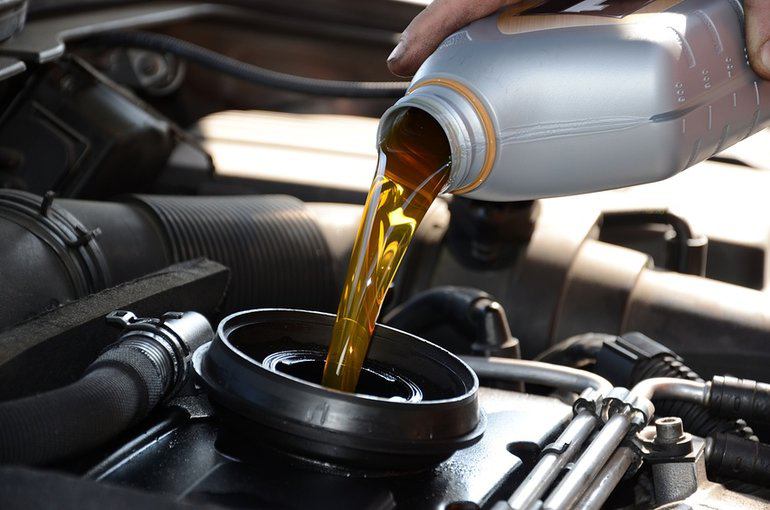Engine oil is the lifeblood of your vehicle’s engine. It plays a crucial role in keeping the engine running smoothly and efficiently. Over time, however, engine oil degrades and becomes less effective at protecting and lubricating the engine components. This is why regular oil changes are essential for maintaining the health and performance of your vehicle.
The Role of Engine Oil
Before we delve into the reasons why engine oil needs to be changed, let’s first understand the role that engine oil plays in the overall functioning of a vehicle’s engine.
Engine oil serves several vital functions, including:
- Lubrication: Engine oil lubricates the moving parts of the engine, reducing friction and minimizing wear and tear.
- Cooling: It helps to dissipate heat generated by the engine’s internal combustion process.
- Cleaning: Engine oil helps to remove dirt, debris, and contaminants from the engine, preventing the buildup of sludge and deposits.
- Sealing: It forms a protective film over metal surfaces, helping to seal tiny imperfections and preventing leaks.
Reasons for Regular Oil Changes
Now that we understand the critical role of engine oil, let’s explore the reasons why regular oil changes are necessary:
1. Degradation Over Time
Engine oil degrades over time due to exposure to high temperatures, pressure, and contaminants. As the oil breaks down, it becomes less effective at lubricating the engine components, leading to increased friction and wear. Regular oil changes help to maintain the optimal lubricating properties of the oil, ensuring that the engine operates smoothly.
2. Removal Of Contaminants
As the engine operates, dirt, metal particles, and other contaminants can find their way into the oil. Over time, these contaminants can form sludge and deposits, which can impair the performance of the engine and lead to potential damage. Regular oil changes help to remove these harmful particles, preventing the buildup of sludge and maintaining a clean and healthy engine.
3. Heat Dissipation
Engine oil helps to dissipate the heat generated by the engine’s combustion process. However, over time, the heat causes the oil to break down and lose its ability to effectively absorb and dissipate heat. Fresh oil has better heat-absorbing properties, which is why regular oil changes are essential for ensuring that the engine remains properly cooled during operation.
4. Extended Engine Longevity
Proper lubrication is crucial for the longevity of the engine. Regular oil changes help to minimize wear and tear on the engine components, reducing the risk of premature engine failure. By maintaining clean and effective oil, you can extend the lifespan of your vehicle’s engine and avoid costly repairs down the road.
5. Optimal Performance And Fuel Efficiency
Clean and fresh oil is essential for maintaining the optimal performance of the engine. It helps to reduce friction, improve efficiency, and ensure that the engine operates at its best. Additionally, regular oil changes can help improve fuel efficiency, saving you money on gas in the long run.
6. Warranty Compliance
Many vehicle warranties require regular maintenance, including oil changes, to remain valid. Failure to adhere to the manufacturer’s recommended oil change intervals could void your warranty coverage, leaving you responsible for any future repairs or replacements that may arise.
7. Environmental Impact
Old, dirty oil can contribute to increased emissions and pollution. By changing your engine oil regularly, you can help minimize your vehicle’s environmental impact and reduce the harmful emissions released into the atmosphere.
8. Resale Value
A well-maintained vehicle with a documented history of regular oil changes can command a higher resale value. Potential buyers are often willing to pay more for a vehicle that has been consistently cared for and maintained, including regular oil changes.
Recommended Oil Change Intervals
The frequency of oil changes can vary depending on several factors, including the type of driving you do, the age of your vehicle, and the manufacturer’s recommendations. As a general guideline, most experts recommend changing your engine oil every 3,000 to 5,000 miles for conventional oil and every 5,000 to 7,500 miles for synthetic oil.

Credit: www.reddit.com

Credit: www.wallacechev.com
Frequently Asked Questions
What Happens If Engine Oil Is Not Changed?
Not changing engine oil can lead to increased wear, worse MPG, overheating, clogged systems, and potential engine failures. Regular oil changes are crucial for peak engine performance and longevity. Clean oil ensures proper lubrication and smooth engine operation.
Why Is It Necessary To Change Engine Oil?
Regularly changing engine oil is necessary for several reasons. First, it improves engine performance and extends its lifespan. Second, it helps achieve optimal gas mileage. Third, clean oil ensures proper lubrication of engine components, preventing wear and tear. Fourth, it keeps the engine controls running smoothly.
Finally, neglecting oil changes can lead to issues such as increased emissions, clogged systems, and potential engine failures. Stay proactive and change your engine oil on time for a well-maintained vehicle.
How Long Can You Go Without An Oil Change?
You should not go more than 5,000 to 7,500 miles or 6 months without an oil change. Regular oil changes are crucial to maintain engine performance and longevity.
What Causes The Need For An Oil Change?
The need for an oil change arises when the oil becomes worn or aged out due to heat, pressure, and the collection of harmful particles. Regular oil changes are essential to maintain the performance and longevity of the engine, ensure proper lubrication, and improve fuel efficiency.
Skipping oil changes can lead to increased wear, overheating, decreased resale value, and potential engine failures.
Conclusion
Regular oil changes are a fundamental aspect of vehicle maintenance. By understanding the importance of changing engine oil, you can ensure that your vehicle’s engine remains healthy, efficient, and reliable for years to come. Don’t overlook the significance of this simple yet crucial maintenance task—your engine will thank you for it!
Read More: If you never change the oil in your car, how long before the engine dies
